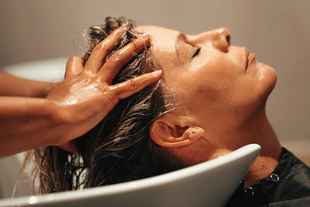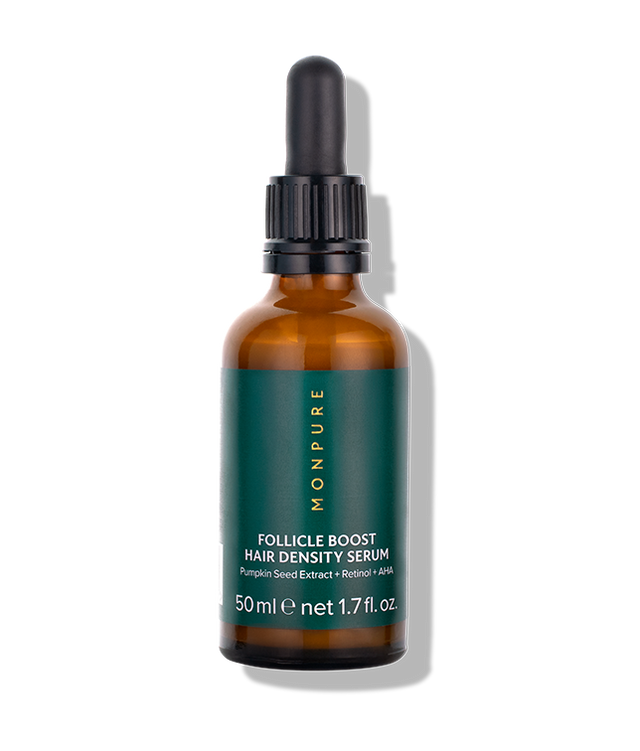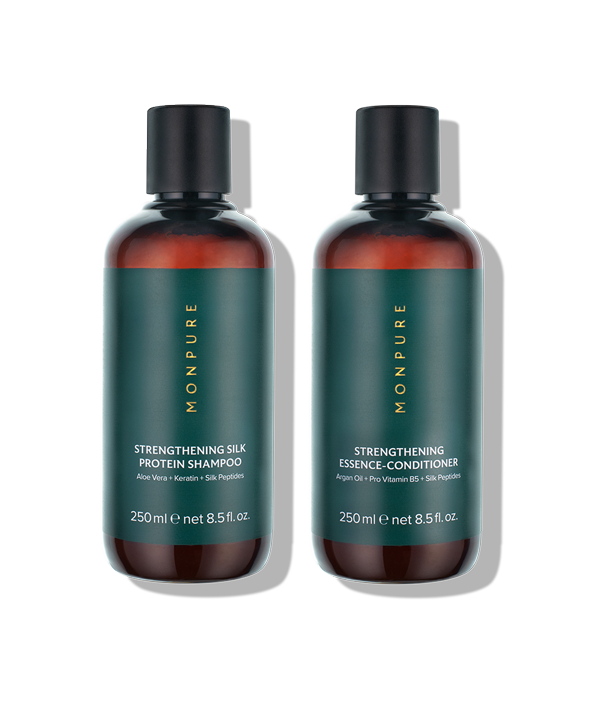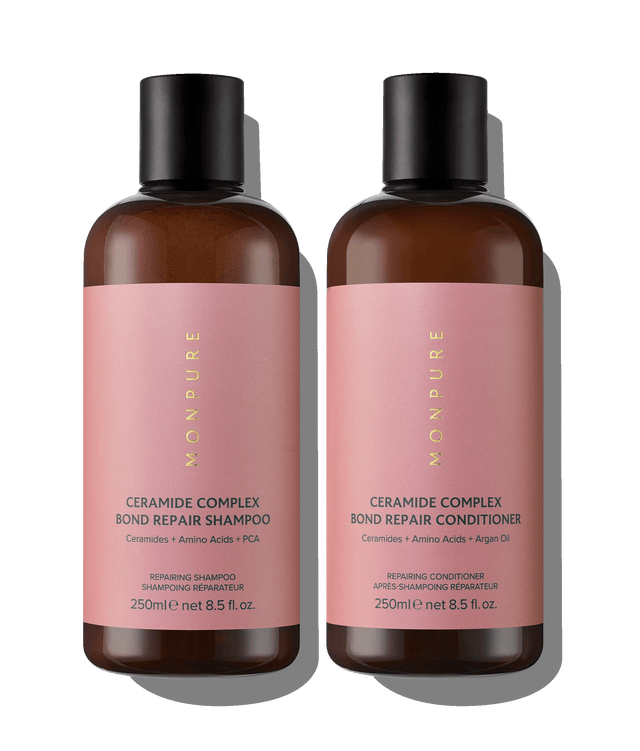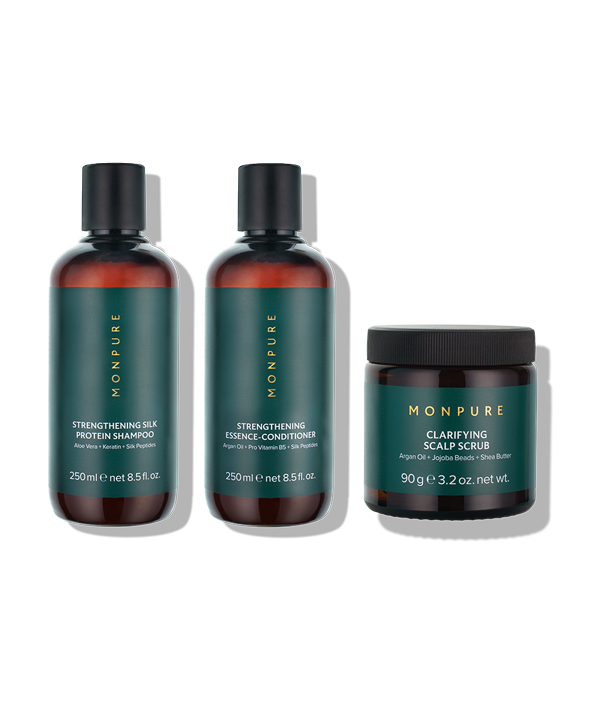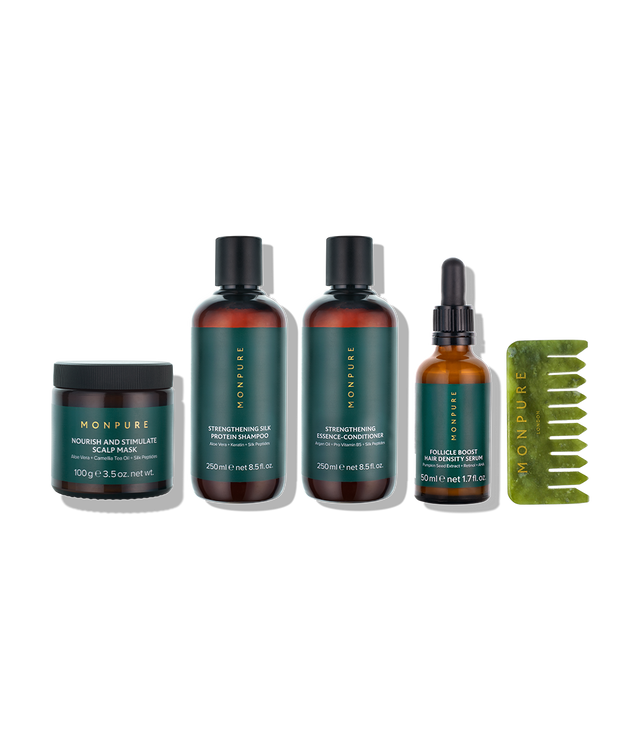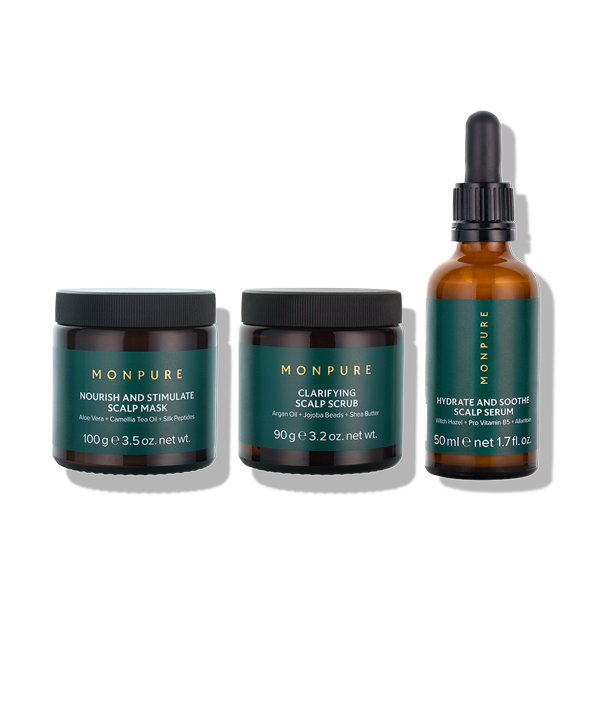Do you toss and turn at night, struggling to fall asleep? Or do you wake up feeling like you barely slept at all? You're not alone. Sleep issues are prevalent, with roughly 62% of adults worldwide suffering from lack of sleep.
And while sleep deprivation can take an obvious toll on your energy levels and mood, it also negatively impacts your hair! Hair growth is a cyclical process regulated by complex biological interactions. New scientific research is shedding light on how one key bodily process – sleep – significantly influences hair follicle health.
Sleep is essential to every process in the body, including hair growth. Your body repairs itself and recovers while you snooze, meaning you need 7 to 9 quality hours of shut-eye each night to keep your hair growth cycle healthy. Read on to understand exactly how lack of sleep stunts hair growth, and what you can do about it.

An Overview of The Human Hair Growth Cycle
Human hair progresses through three main phases during its 2-6 year lifespan:Anagen - Active Growth Phase
The anagen phase spans 2-6 years. Follicle cells rapidly divide, pushing out the growing hair shaft. Around 85-90% of hair is in anagen at any time.
Catagen - Transitional Phase
This short 2-3 week phase signals the end of active growth. The follicle shrinks to discontinue dividing and cuts off blood supply/nutrients to the hair.
Telogen - Resting Phase
During telogen, the hair stops growing and eventually sheds. Club hair emerges, lifeless, and no longer in the anagen production stage. After 2-4 months the follicle re-enters anagen to begin growing a new hair.
This biological cycle is coordinated through an intricate interplay of hormones, enzymes, growth factors, genes, and cellular communication. Interrupting these systems can disrupt proper cycling between phases. One culprit contributing to hair cycle imbalance? Inadequate sleep.
The Importance of Quality Sleep for Healthy Hair
Believe it or not, the quality of your sleep significantly influences the health of your hair. During deep, restorative sleep stages, your body goes into repair and rejuvenation mode. Sleep repairs and regenerates cells in your body, including hair follicle cells. Restorative deep sleep phases allow tissue growth and proliferation of hair matrix keratinocytes.This is when essential growth hormones, including those that stimulate hair growth, are released.
Furthermore, adequate slumber ensures your stress hormone levels (like cortisol) are kept in check. Unmanaged stress contributes to hair loss, as it can prematurely push hair follicles into the resting phase where they are prone to shedding.
Sleep Facilitates Hair Growth with Key Hormones
During deep non-REM and REM sleep cycles, several hormones and enzymes are integral to hair growth, including:- Oestrogen - Stimulates hair follicle cell proliferation to support active anagen growth
- Growth Hormone - Triggers downstream insulin-like growth factors to boost hair keratin production.
- Melatonin - Helps synchronize hair cycle timing; melatonin receptors are identified in human hair follicles.
- Sleep releases essential enzymes and proteins through protein synthesis that promote hair follicle cell metabolism and structural keratin production.
- Cortisol inhibits growth factors, leading to reduced proliferation & differentiation of hair follicle cells.
- Cortisol alters melatonin signalling, which leads to disrupting hair cycling.
- Constricts local blood vessels, leading to decreased oxygen & nutrients to the follicle.
These impacts can prematurely terminate the anagen phase, shifting more resting follicles into telogen shedding or preventing sufficient new anagen activation. Over time, disrupted cycle regulation manifests as thinning hair density and loss.

How Melatonin Supports Hair Growth
Melatonin, often referred to as the “sleep hormone,” is an important hormone that regulates sleep cycles and hair growth patterns. It has receptors in hair follicles that help control the hair's growth phase (anagen) and rest phase (telogen). When melatonin levels are adequate, it helps stimulate the active growth state of hair follicles, signalling them to enter the anagen phase. During anagen, the cells in the follicle divide rapidly to grow new hair.Melatonin also has antioxidant effects that lower inflammation and damage to the follicles. When there isn't enough melatonin available to bind to receptors on the hair cells, it can be harder for new hairs to form, leading to thinning or shedding. People with hair loss often have low melatonin levels. Taking melatonin supplements, especially timed around the body's circadian rhythms, can help reactivate hair follicles by encouraging more cells to enter the growth phase. This leads to the production of new hairs.
Key Signs Your Hair is Impacted by Lost Sleep
If poor sleep is taking its toll on your tresses, watch for:- Excess shedding and more hair left in your brush/shower
- Lackluster, weak-feeling hair that tangles easily
- Thinning density and a widening part line
- Little to no new regrowth along the hairline
The bottom line? Your mane needs you to prioritise ample, uninterrupted rest in order to reach its full thickness and shine potential!

How to Treat for Sleep-Deprived Hair Loss
Regulate Sleep Architecture- Maintain a consistent sleep-wake schedule
- Optimise bedroom environment & pre-bedtime routine
- Rule out sleep disorders like insomnia or apnea
- Therapies like meditation, yoga, and massage help control cortisol
- Support mental health through counselling, journaling, social connection
A Two-Step Regimen to Encourage Growth Cycles
To counteract the hair growth effects of sleep deprivation, we recommend a two-step approach. First, apply the Nourish and Stimulate Scalp Mask to relieve tension while delivering nutrients that create an optimal scalp environment for follicle health. The mask stimulates activity in dormant or damaged follicles.Next, use the Follicle Boost Hair Density Serum, containing pumpkin seed extract, to prolong the anagen growth phase. By blocking the enzyme 5-alpha reductase, it minimises DHT production to support the hair cycle. A clinical study found pumpkin seed oil boosts growth by 40% over 24 weeks. Combined, these treatments promote growth in existing follicles while encouraging new ones to enter the productive anagen phase.
Adequate sleep deeply impacts hair health. Sleep deprivation disrupts the biological hair growth cycle, prematurely pushing follicles into the shedding phase. Over time, this leads to progressive hair loss. Improving sleep consistency helps stabilise hormones, encourages new hair production, and alleviates stress - creating conditions for robust growth. While genetics play a role, focusing on quality sleep, stress reduction, and targeted treatments to stimulate follicles can offset sleep-deprived hair loss. Prioritising sleep health sustains optimal density and shine.






